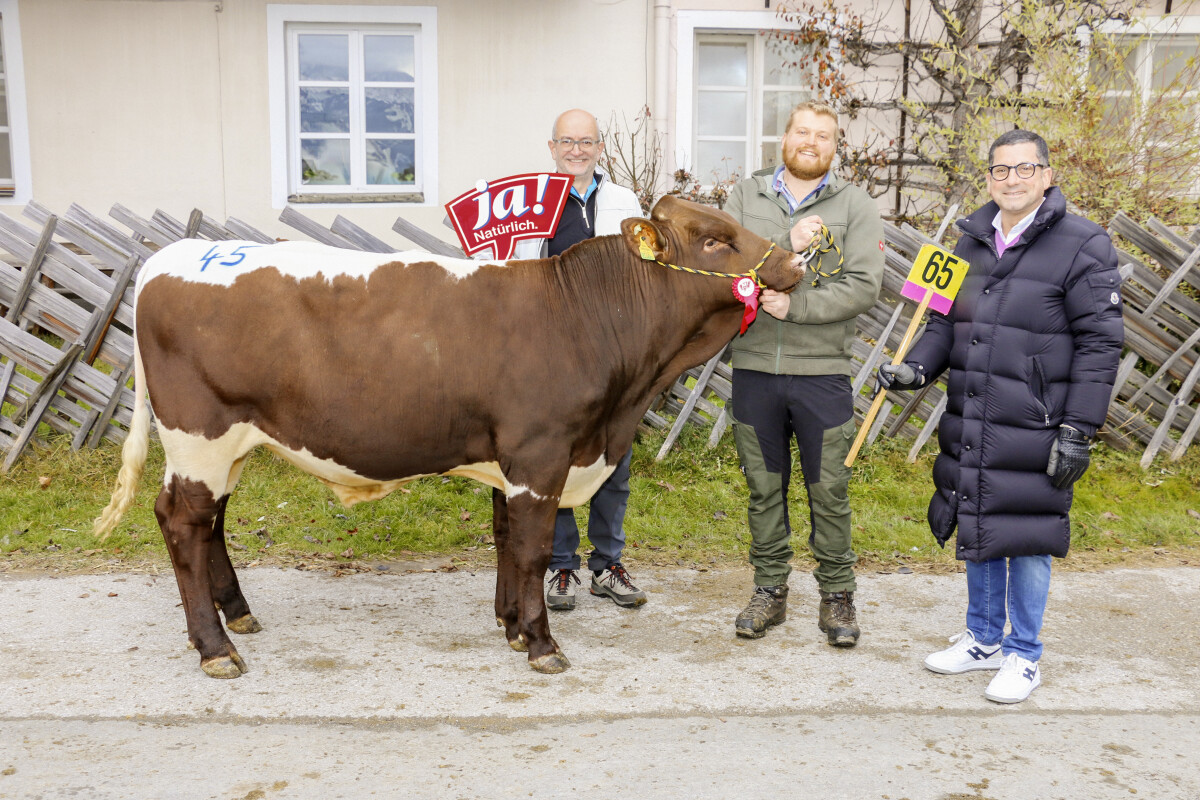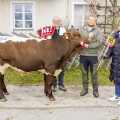For 16 years now, Austria's largest organic brand has been committed to the preservation of the robust dual-purpose Pinzgauer cattle breed in cooperation with ARGE Pinzgauer Rind. The annual autumn bull market is an essential part of this collaboration. Over the years, Ja! Natürlich has promoted a progeny of more than 6,000 animals through the purchase of purebred Pinzgauer breeding bulls, thereby significantly contributing to the genetic diversity and performance strength of the breed.
“It is a major concern for us to secure the existence of the traditional Pinzgauer breed,” explains Andreas Steidl, Managing Director of Ja! Natürlich, who was present on-site. “People don’t know that in Austria, from the once numerous cattle breeds, only a few are still used today. This is a great loss for biodiversity. Therefore, as Austria's largest organic brand, we see it as our duty and responsibility to counteract the ongoing loss of this diversity in livestock farming. We want to prevent valuable traditional breeds from being forgotten or even becoming extinct, and we want to ensure that professional breeding selection continues.”
This year, Ja! Natürlich celebrates its 30th anniversary and continues to set a strong example for sustainability and biodiversity in this anniversary year. Since its founding in 1994, Ja! Natürlich has revolutionized Austrian food retailing with the highest organic standards and has been a pioneer for more sustainable agriculture. What began with 30 products has now grown into a product range of over 1,100 items – a milestone that underscores the importance of organic agriculture for the future.
Through initiatives like this one, which is based on a strong partnership with breeders, Ja! Natürlich actively contributes to ensuring that the Pinzgauer breed, which now makes up only around two percent of the total breed population in Austria, has a future. The Pinzgauer cattle is an old, robust dual-purpose breed that is distinguished by excellent meat quality and good milk production, as well as the ability to adapt to challenging climatic conditions, such as in high altitudes. Although the Pinzgauer cattle is optimally suited to regional conditions, it continues to be displaced by more productive breeds in large-scale farming.







